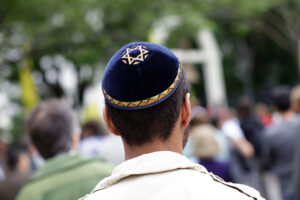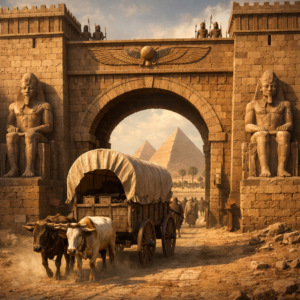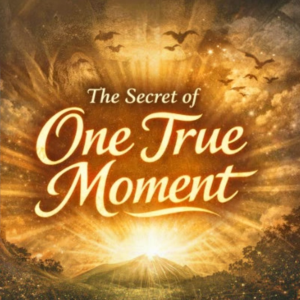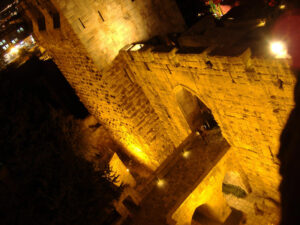Our Mission – Connect to the Source
Nothing defines Judaism as much as halacha. Our sages across the expanse of time from Avraham Avinu until now have understood that the primary objective of life is to identify and connect with our spiritual Source, Hashem. This connection is the only way to truly actualize the human potential and to imbue our finite lives with eternal meaning. The tool that Hashem has given us to navigate through the labyrinth of life is the Torah, in which is found all the guidelines and rules we must follow in order to reach the goal of leading a more enlightened life in this world, and attaining the highest possible spiritual existence in the World to Come – closeness with Hashem in both realities.
This being the case, one might have thought that there should always be unanimity among our rabbis, ancient and modern, regarding halacha so as to guide us on the surest route to fulfillment of the Torah’s mitzvos. Yet as anyone who has ever learned a mishna, delved into the complexities of the gemora or studied the shulchan aruch can attest, this is far from the case. Our halachic texts are filled with contradicting opinions, and it seems at times there is anything but consensus. Why is this the case and whose rulings should we follow?
As a fundamental premise, halacha is robust enough to address the entire spectrum of life’s experiences in order to facilitate every single Jew’s attainment of the ultimate goal, regardless of the uniqueness of his situation or his place in the timeline of history. There are differing opinions, all authentically based on Torah and mesorah, our oral heritage passed down from Moshe Rabbeinu, to address even the most uncommon scenarios. Although the dictum of ailu v’ailu divrei Elokim chayim, that all genuine opinions are the words of the living G-D, teaches us that all opinions in the mishna and gemora are valid, the general rule is “yachid v’rabim, halacha k’rabim“, when it’s an individual versus the majority, the law follows the majority.
The Rebbe teaches us that halacha is related to Olam Haba’ah, the World to Come, and indeed, our rabbis promise that all who study halachos every day are guaranteed a portion in Olam Haba’ah, as it ensures we are living in harmony with the wishes of our Creator. The Rebbe teaches that study and implementation of halacha ensures awareness of and closeness to Hashem in this world as well.
We exist in an environment of diversity where literally every thing is unique, and yet it all originates from the same Source, Hashem. Seeing the oneness of Hashem in our world amidst the diversity means closeness to Him. When we unite to follow the majority in halacha, we are demonstrably synchronizing with the Oneness of Hashem. In fact, unity in the face of diversity makes the unity itself that much more outstanding.
The Rebbe underscores this by citing an incident in the gemora that clearly illustrates Hashem’s affinity for halachic unity:
The Talmud, Bava Metzia, 59b, relates that a new type of oven, called an akhnai, was brought to the house of study where its inventor sought the imprimatur of the rabbinical court. All the sages considered the akhnai-oven halakchically susceptible to ritual uncleannes. Only Rabbi Eliezer disagreed. He brought every conceivable logical argument to win over the other sages, but none were convinced. Then he declared, “if the halakhah accords with my opinion, let this carob tree prove it!” The carob tree flew out of the ground and landed a hundred cubits away. “No proof can be brought from a carob tree,” the other sages retorted. Again Rabbi Eliezer said, “if the halakhah accords with my opinion, let the stream of water prove it!” The stream of water flowed backwards. The others remained unmoved: “No proof can be brought from a stream of water.” Rabbi Eliezer tried yet again: “If the halakhah accords with my opinion, let the walls of the house of study prove it!” The walls began to collapse, but Rabbi Yehushua rebuked them: “When scholars are engaged in a disagreement over a point of halakha, what right do you have to interfere?” The walls remained suspended; not falling, in honor of Rabbi Yehushua, and not resuming their upright position, in honor of Rabbi Eliezer. Finally, Rabbi Eliezer said, “if the halakhah accords with my opinion, let it be proven from on high!” A Heavenly Voice cried out: “Why do you rabbis argue with Rabbi Eliezer? The law accords with him in every instance!” But Rabbi Yehoshua then rose and exclaimed: “What is the meaning of ‘it is not in Heaven?’ (Deuteronomy 30:12). It is as Rabbi Yirmiyahu taught: Once the Torah was give at Mount Sinai, we longer pay attention to a Heavenly Voice, for the Torah states: ‘Follow the majority!'” Rabbi Natan later encountered the prophet Eliyahu and asked him how the Holy One, blessed be He, had reacted to this exchange. “G-d laughed,” Eliyahu replied, “and He declared: ‘My sons have defeated Me! My sons have defeated Me! (excerpted from BRI Likutey Moharan Tinyana 2)
This, the Rebbe teaches, is the power of halacha.
(Based on Likutey Moharan, Tinyana 2)
- 0 comment






















